Muscle Tension and the Menopause: Aches and Pains

Along with joint pain, muscle tension is a common symptom as many women approach menopause. You might feel that your body feels tight, or your muscles are particularly tender. Taking some time to practise self care on a regular basis can really help to keep any aches and pains you may be experiencing at bay. Here are some tips to help with this.
So why does the Menopause cause muscle tension?
As we get a bit older, it’s normal to experience some muscle tension. But if you’re between the ages of 45-55 it may be that the menopause is to blame. Because your hormones are in a state of flux, as the levels of oestrogen and progesterone begin to change, this also has impact on cortisol (the ‘stress hormone’) levels. This hormonal imbalance can cause muscles in the body to tighten and become fatigued.
Is Menopausal muscle tension linked to anxiety?
Muscle tension is closely related to anxiety, because when we feel anxious, all of our muscles tense up. This is the body’s natural reaction to stress, as it closes in on itself to guard against pain and injury. We know that going through the menopause is a stressful time and seeing all the changes in our bodies can make us particularly anxious. If you’re finding you’re very stressed a lot of the time, the body will be in a constant state of guardedness and this can contribute to tightness in the back and neck, tension headaches, muscles pains and even muscle spasms.
What can help to relieve muscle tension?
If you’re looking for help relieving tension, relaxation techniques and breathing exercises are a good place to start. It’s also a good idea to look into healthy lifestyle tweaks such as
- Regular, simple stretching exercises, like yoga or pilates
- Making sure you’re sleeping and resting enough, try these mindfulness ideas
- Making sure you’re eating a healthy diet including magnesium and Omega-3
Other tips to tackle muscle tension :
If you need some extra help, there are a number of remedies available that can help.
In more severe cases of muscle tension or if you are worried about your symptoms it’s a good idea to speak to your GP. They will be able to offer more advice about lifestyle changes and other types of medication, if required.
Disclaimer:
Become™️ has a wonderful team of experts who all helped in the writing of this content. The opinions expressed within this page are the opinions of many people we asked, and from information we researched online. Become™️ is not responsible for the accuracy, completeness, suitability, or validity of any information on this page. All information is provided on an as-is basis.



